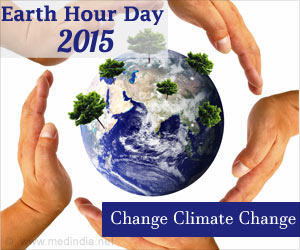
The researchers say these "climate wiggles" could slow or speed the rate of warming from decade to decade, and accentuate or offset the effects of increases in greenhouse gas concentrations. If not properly explained and accounted for, they may skew the reliability of climate models and lead to over-interpretation of short-term temperature trends.
The research used empirical data, rather than the more commonly used climate models, to estimate decade-to-decade variability.
Patrick T. Brown, a doctoral student in climatology at Duke University’s Nicholas School of the Environment said that Statistically, it’s pretty unlikely that an 11-year hiatus in warming, like the one it was seen at the start of this century, would occur if the underlying human-caused warming was progressing at a rate as fast as the most severe IPCC projections.
Hiatus periods of 11 years or longer are more likely to occur under a middle-of-the-road scenario, he further added.
The study is published in the peer-reviewed journal Scientific Reports.
Advertisement









